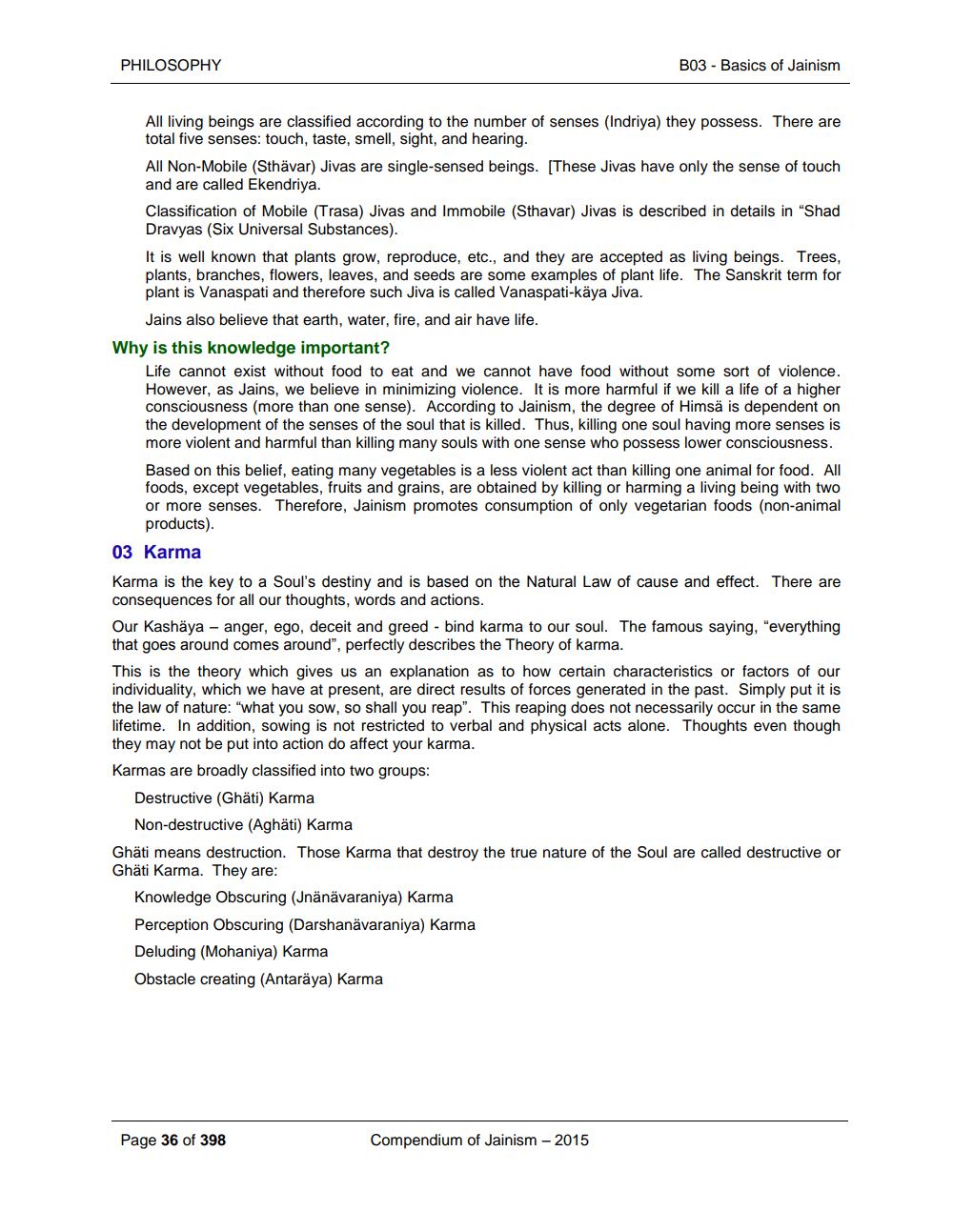________________
PHILOSOPHY
All living beings are classified according to the number of senses (Indriya) they possess. There are total five senses: touch, taste, smell, sight, and hearing.
B03 Basics of Jainism
All Non-Mobile (Sthävar) Jivas are single-sensed beings. [These Jivas have only the sense of touch and are called Ekendriya.
Classification of Mobile (Trasa) Jivas and Immobile (Sthavar) Jivas is described in details in "Shad Dravyas (Six Universal Substances).
It is well known that plants grow, reproduce, etc., and they are accepted as living beings. Trees, plants, branches, flowers, leaves, and seeds are some examples of plant life. The Sanskrit term for plant is Vanaspati and therefore such Jiva is called Vanaspati-käya Jiva.
Jains also believe that earth, water, fire, and air have life.
Why is this knowledge important?
Life cannot exist without food to eat and we cannot have food without some sort of violence. However, as Jains, we believe in minimizing violence. It is more harmful if we kill a life of a higher consciousness (more than one sense). According to Jainism, the degree of Himsä is dependent on the development of the senses of the soul that is killed. Thus, killing one soul having more senses is more violent and harmful than killing many souls with one sense who possess lower consciousness. Based on this belief, eating many vegetables is a less violent act than killing one animal for food. All foods, except vegetables, fruits and grains, are obtained by killing or harming a living being with two or more senses. Therefore, Jainism promotes consumption of only vegetarian foods (non-animal products).
03 Karma
Karma is the key to a Soul's destiny and is based on the Natural Law of cause and effect. There are consequences for all our thoughts, words and actions.
Our Kashaya - anger, ego, deceit and greed - bind karma to our soul. The famous saying, "everything that goes around comes around", perfectly describes the Theory of karma.
This is the theory which gives us an explanation as to how certain characteristics or factors of our individuality, which we have at present, are direct results of forces generated in the past. Simply put it is the law of nature: "what you sow, so shall you reap". This reaping does not necessarily occur in the same lifetime. In addition, sowing is not restricted to verbal and physical acts alone. Thoughts even though they may not be put into action do affect your karma.
Karmas are broadly classified into two groups:
Destructive (Ghäti) Karma
Non-destructive (Aghäti) Karma
Ghäti means destruction. Those Karma that destroy the true nature of the Soul are called destructive or Ghäti Karma. They are:
Knowledge Obscuring (Jnänävaraniya) Karma
Perception Obscuring (Darshanävaraniya) Karma
Deluding (Mohaniya) Karma
Obstacle creating (Antaräya) Karma
Page 36 of 398
Compendium of Jainism - 2015




